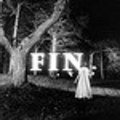Sunrise (F.W. Murnau, 1927) DVDRip VOSE
-
penhamo
- Mensajes: 445
- Registrado: Sab 20 Mar, 2004 01:00
-
sanpesan

- Mensajes: 2776
- Registrado: Mié 02 Oct, 2002 02:00
- Ubicación: Qué mas da
-
bluegardenia

- Mensajes: 6128
- Registrado: Sab 11 Oct, 2003 02:00
- Ubicación: El Páramo del Espanto
-
sanpesan

- Mensajes: 2776
- Registrado: Mié 02 Oct, 2002 02:00
- Ubicación: Qué mas da
-
Jacob

- Exprópiese
- Mensajes: 10210
- Registrado: Jue 01 Jul, 2004 02:00
- Ubicación: Where no one has gone before!
Sunrise (Murnau, 1927) DVDRip Moc#1 (English Intertitles)
"Sunrise es, de todas mis películas, la más cercana a lo que pretendo."

FICHA TÉCNICA Y ARTÍSTICA
Director - F. W. Murnau
Producer - William Fox
Assistant director - Herman Bing
Screenplay - Carl Mayer based on the novel Die Reise nach Tilsit by Harmann Sudermann
Titles - Katherine Hilliker, H. H. Caldwell
Directors of photography - Charles Rosher, Karl Struss
Assistant cameramen - Hal Carney, Stuart Thompson
Special technical effects - Frank D. Williams
Original music score - Erno Rapee, R. H. Bassett, and for the LA premiere - Carli Elinor
Synchronized sound score - Hugo Riesenfeld
Make-up - Charles Dudley
Art direction - Rochus Gliese
Assistant art directors - Edgar G. Ulmer, Alfred Metscher
Editor - Harold Schuster
REPARTO
George O'Brien .... The Man (Anses)
Janet Gaynor .... The Wife (Indre)
Margaret Livingston .... The Woman from the City
Bodil Rosing .... The Maid
J. Farrell MacDonald .... The Photographer
Ralph Sipperly .... The Barber
Jane Winton .... The Manicure Girl
Arthur Housman .... The Obtrusive Gentleman
Eddie Boland .... The Obliging Gentleman
Premiere - 23 de septiembre de 1927, New York City's Time Square Theatre, USA


DVDBeaver | filmsite | Munau-forum | IMdb
Silent Era | Reviews - MRQE | sloppyfilms | Cinema16
SINOPSIS
FICHA TÉCNICA Y ARTÍSTICA
Director - F. W. Murnau
Producer - William Fox
Assistant director - Herman Bing
Screenplay - Carl Mayer based on the novel Die Reise nach Tilsit by Harmann Sudermann
Titles - Katherine Hilliker, H. H. Caldwell
Directors of photography - Charles Rosher, Karl Struss
Assistant cameramen - Hal Carney, Stuart Thompson
Special technical effects - Frank D. Williams
Original music score - Erno Rapee, R. H. Bassett, and for the LA premiere - Carli Elinor
Synchronized sound score - Hugo Riesenfeld
Make-up - Charles Dudley
Art direction - Rochus Gliese
Assistant art directors - Edgar G. Ulmer, Alfred Metscher
Editor - Harold Schuster
REPARTO
George O'Brien .... The Man (Anses)
Janet Gaynor .... The Wife (Indre)
Margaret Livingston .... The Woman from the City
Bodil Rosing .... The Maid
J. Farrell MacDonald .... The Photographer
Ralph Sipperly .... The Barber
Jane Winton .... The Manicure Girl
Arthur Housman .... The Obtrusive Gentleman
Eddie Boland .... The Obliging Gentleman
Premiere - 23 de septiembre de 1927, New York City's Time Square Theatre, USA


DVDBeaver | filmsite | Munau-forum | IMdb
Silent Era | Reviews - MRQE | sloppyfilms | Cinema16
Based on Sudermann's "The Trip to Tilsit," Sunrise is the tale of a farmer's affair with a woman from the city. The unnamed woman (Margaret Livingston) attempts to convince the farmer (George O'Brien), who is also unnamed but is named Ansas in Sudermann's story, to murder his wife (Janet Gaynor), who is unnamed as well, but who Sudermann calls Indre, to sell his property, and move to the city.
Un campesino se enamora de una sofisticada mujer de ciudad que está pasando una temporada en el campo. Su obsesión por ella es tal que descuida sus labores, y la gente comienza a darse cuenta. Pero lo peor vendrá cuando la mujer le pide que se deshaga de su esposa, para poder irse con ella a la ciudad. El hombre decide planear todo para cumplir los planes de su amante.

Friedrich Wilhelm Murnau
En cada uno de mis films intento descubrir tierras inexploradas en el campo del arte, y encontrar nuevas formas de expresión. Por lo demás, soy de la opinión de que todo film vivido realmente por el director, tendrá éxito, y que toda tarea que no se ve afectada por especulaciones económicas, apunta al porvenir."
Filmo F. W. Murnau

Sunrise (1927)
Viewers paying attention to the mise-en-scene in Sunrise will notice that both of these painterly styles are reflected in the film. Robin Wood comments that "several shots in the film immediately suggest paintings," such as "the second-honeymoon image of the boat sailing home by midnight." This particular scene is composed of a black background, a white sail, and the path of moonlight on the water, which "evokes the simplified color blocks (though not the clamorous colors) of the Bricke group out of which Expressionism developed." Wood introduces yet a third art-historical category in asserting that one should also note "the unforgettably beautiful shots of boats and lanterns moving across the dark water, as the man and the villagers search for the wife after the storm, which in the use of patterns of light and reflected light suggests an Impressionism offset by the intense emotional-dramatic content of the scene" (11). Although Sunrise can be characterized by a number of compositional styles, its Expressionist influences are subdued in comparison with Murnau's darker and more foreboding German works.
If one argues that Expressionism and Romanticism have in common the attempt to exteriorize psychological states, then the presence or absence of either of the two must alter a film's representation of its characters' psychologies. Readings of both film styles generally maintain that they tend toward the representation of inner experiences in the external world, and hence their affinity with any cinema that would define itself as "psychological:" Cardullo defines Expressionism similarly in a way that corresponds to the motifs of films such as Caligari, arguing that it retreats into the mind while, paradoxically, projecting that mind onto the world. He writes that "Expressionism externalizes, `expresses,' what is inside the mind, it makes `outer,' what is `inner.' If Impressionism could be said to be the subjective rendering of the visible world, Expressionism is the subjective expression of an inner world, a vision" (25-26). Sunrise is, however, not a film in which inner psychological states are exteriorized. The film instead takes the position that the subjective inner world is best left internal; in other words, that fantasy can be allowed its own orderly, private domain. In this way, Sunrise may be argued to have been an anti-psychological film. Its deferral of Expressionist problematics on a formal level can serve as an indication that the film takes seriously the assertion that one could liberate one's self from the unconscious and the consequential distortions of subjective perspective that come of having one. - Literature Film Quarterly, 2000, by Brad Prager
Every decade, the British Film Institute's Sight and Sound polls hundreds of directors and critics to determine their favourite f1lms of all time. Battleship Potemkin and Citizen Kane are unsurprising choices, as are the predictable titles made during the past thirty or forty years. But how does one explain the appearance of Sunrise, made in 1927 just as talkies were about to change the nature of cinema forever?
Practically everyone knows that RKO Pictures hired 24-year-old Orson Welles and granted him carte blanche to make a film of his choice in August 1939. He could write, produce, direct, or star in whatever project he chose to make, free from any studio meddling. Welles decided he would write, produce, direct, and star in the film. The picture was Citizen Kane. Less well known is the fact that such unheard-of artistic freedom was not unprecedented.lt had been granted once before, to another film maker. F. W. Murnau, Germany's finest exponent of mood and atmosphere, Expressionism, and camera movement, was imported to Hollywood in July 1926, after the well-received American release of The Last Laugh. William Fox of the Fox Film Corporation promised and gave him complete artistic freedom. Fox told Murnau to take his time, spend whatever he had to, and make any film he wished to make.
The film that resulted was Sunrise, made entirely without studio interference. It had been planned down to the last detail in Berlin before Murnau departed for California. The novella on which the film was based, Hermann Sudermann's Die Reise nach Tilsit (The Excursion to Tilsit), was German. The script was written in Germany by Carl Mayer, the master of Expressionism who had co-authored The Cabinet of Dr. Caligari and wrote Murnau's The Last Laugh. The sets were designed in Germany by Rochus Gliese, who had designed Paul Wegener's Expressionist classic, The Golem.
Even Murnau's chief cinematographer, Charles Rosher, went to Berlin to join the director in working over the detaíls of lighting and camera set-ups. No one saw the picture except Murnau, his tWo cameramen, and his cutter, until it was delivered to William Fox as a completed work.
So Sunrise may be called, strictly speaking, a German-American production. It is not only one of Hollywood's most ambitious projects but one of the greatest films of all time. It showed what was possible near the end of the silent era when doom-laden German Expressionism was ingeniously wedded to Hollywood's technology and millions. The silent picture would soon pass into history, but with Sunrise it reached artistic perfection. Thirteen days after its premiere, Warner Bros. released The Jazz Singer, the first part-talkie feature film.
Sunrise is Murnau's masterwork, more powerful and advanced than either The Last Laugh or Faust. It is one of the most moving stories ever told on screen - a tale of temptation, reconciliation, reconsecration, and redemption, told with a lyrical simplicity that gives it the timeless universality of a fable. As the subtitle ofthe film puts it, Sunrise is "A Song ofTwo Humans". Its protagonists are identified only as "The Man" (George O'Brien) and "The Wife" (Janet Gaynor).
Most of Sunrise takes place outdoors, but, as with Faust, it was almost completely filmed indoors on stages with specially constructed sets and models, where Murnau could control evety shadow, every nuance of composition, and all the intricate camera movement. The only set built off the lot was a rural village on the shores ofLake Arrowhead, California. It looks authentically German, but its setting is "no place and every place".The other side of the lake - the route to the big city - was shot on the Fox loto Legend has it that the circuitous trolley ride into the city was necessitated by Murnau's having to avoid shooting on the part of the lot where the great Tom Mix was making westerns!
Sunrise premiered in New York at the Times Square Theatre on 23 September 1927. It fared poorly at the box office, as did many late silents released during the advent of talking pictures. At the very first Academy Awards ceremony, which honoured the 1927-1928 season, Sunrise won three Oscars. Janet Gaynor received the Best Actress award for her work in Sunrise, 7th Heaven, and Street Angel. Charles Rosher and Karl Struss, two of Hollywood's most capable cameramen, received the award for Best Cinematography; Rosher had been Mary Pickford's chief cameraman for years and served as a consultant on Murnau's Faust at Ufa Studios in Berlin in 1925. Sunrise itself received a special Oscar for ''Artistic Quality of Production", the only time this award was ever given. And although ít did not win an Oscar, the film's experimental sound-on-disc orchestral score with accompanying sound effects, by Hugo Riesenfeld, was equally effective. - R. Dixon Smith, 2004
Sunrise: a song of two humans
En el .rar van los .sub + .idx, los intertítulos de la peli son en inglés.
Subs español descarga directa - Subs francés descarga directa
GSpot
File Name: Sunrise (Murnau, 1927) DVDRip [MoC].avi
File Size (in bytes): 1,220,384,768
Duration: 1:35:00
Subtype: OpenDML (AVI v2.0),
Video Codec Name: XviD 1.1.2 Final
Width x Height (pixels): 560 x 464
Video Bitrate: 1421 kb/s
Bits/Pixel: 0.228 bpp
Frames Per Second: 23.976 fps
Compatibility: B-VOP, ,
Audio Codec: 0x0055 MPEG-1 Layer 3
Audio Bitrate: 144 kb/s
Audio Channels: 2
Audio track 1: Original Hugo Riesenfeld composed movietone score.
Audio track 2: Olympic Chamber Orchestra score (Timothy Brock).
CAPTURAS








La última imagen se me ha colado, perdón, es una foto de tethor entrompao.
Also Known As:
Sunrise (USA) (short title)
Aurora (Brazil) (Portugal) [pt]
Sonnenaufgang (Austria) (Germany) [de]
Amanecer (Spain) [es]
Auringonnousu (Finland) [fi]
Aurora (Italy) [it]
Aurore, L' (France) [fr]
Litauische Geschichten (Belgium: German title) [de]
Sonnenaufgang - Lied von zwei Menschen (Germany) (original script title) [de]
El más maravilloso film de la historia del cine. El único al que la Academia del cine de Hollywood concedió el galardón de Best Picture, Unique and Artistic Production (parece que por aquella época en Hollywood sabían lo que era bueno).
Personalmente me gusta mucho más la partitura original (1ª cadena de audio), pero he incluido la de Timothy Brock porque son unos meguillas de nada. Los intertítulos de la peli son en inglés, hay subs en francés y español. El ripeo está medio decente, creo.
Igual dentro de no mucho comparto el DVD completo en Karagarga, no lo sé. Había uno en Cinematik pero creo que lleva tiempo sin fuentes completas.
Compartiendo en KG: http://karagarga.net/details.php?id=25518
Eureka reedita Amanecer (y ya van...)
Un saludo.
Última edición por Jacob el Mar 03 Abr, 2007 23:10, editado 2 veces en total.
-
arthureld

- Mensajes: 1378
- Registrado: Sab 01 Oct, 2005 02:00
- Ubicación: En La Torre Oscura
-
marlowe62

- Stetson dissolutus
- Mensajes: 6582
- Registrado: Mar 06 Jul, 2004 02:00
-
jjgomera

- Mensajes: 666
- Registrado: Vie 09 Jun, 2006 22:01
- Ubicación: La Casa del Valle del Paraíso
-
Palahniuk

- What a day, what a lovely day!
- Mensajes: 3904
- Registrado: Vie 09 Jun, 2006 23:07
- Ubicación: Vuelo 2039
-
vinacha

- Mensajes: 1207
- Registrado: Jue 08 Ene, 2004 01:00
- Ubicación: => Palencia <=
-
zeppogrouxo
- cangurosuperduro
- Mensajes: 3081
- Registrado: Mar 02 Sep, 2003 02:00
-
dhrapi

- Dipsómano consagrado.
- Mensajes: 6352
- Registrado: Jue 06 Nov, 2003 01:00
- Ubicación: En la boda de Ignatius Reilly; con Tupp.
-
Coursodon

- Mensajes: 2224
- Registrado: Vie 15 Jul, 2005 02:00
- Ubicación: Extremadura
-
Jacob

- Exprópiese
- Mensajes: 10210
- Registrado: Jue 01 Jul, 2004 02:00
- Ubicación: Where no one has gone before!
-
locutus

- AKA Jean-Luc Picard
- Mensajes: 2044
- Registrado: Lun 14 Jun, 2004 02:00
- Ubicación: Cuadrante Delta
-
mesmerism

- Mensajes: 3008
- Registrado: Mié 08 Sep, 2004 02:00
-
Bruckheimer
- Mensajes: 616
- Registrado: Jue 09 Sep, 2004 02:00
- Ubicación: Navegando en mi limonero
-
el_rey_de_las_cartas

- Mensajes: 1128
- Registrado: Jue 09 Sep, 2004 02:00
- Ubicación: València




